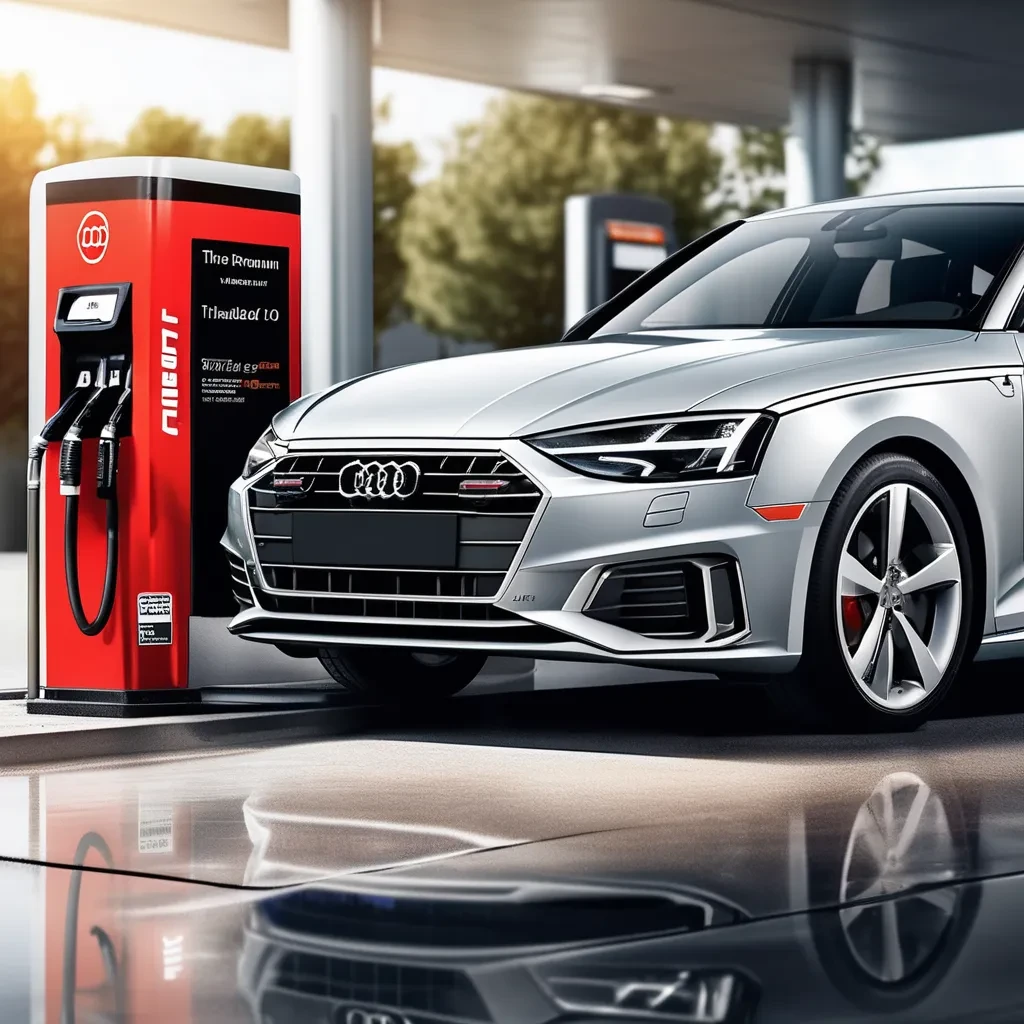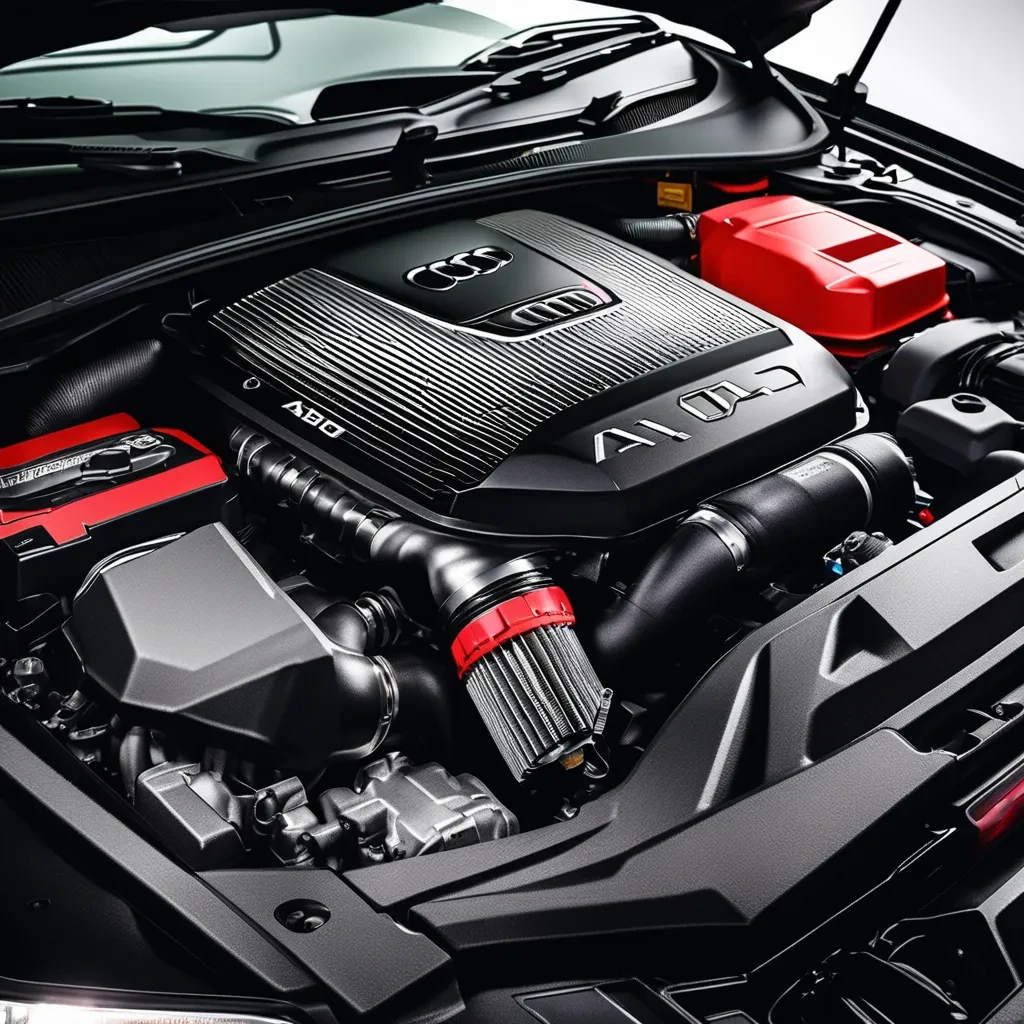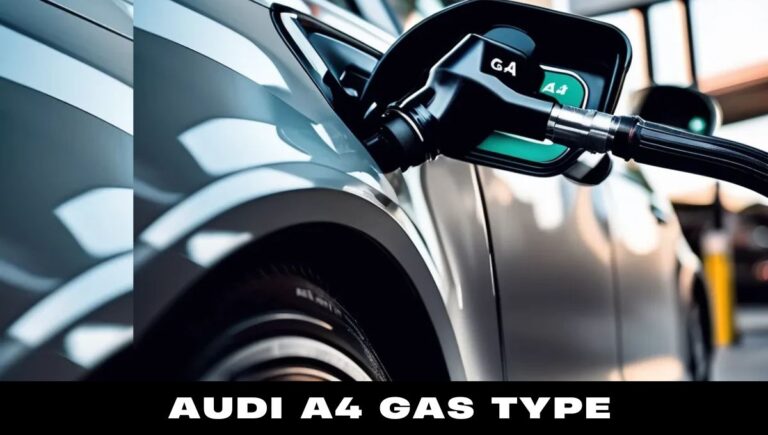Choosing the correct type for your Audi A4 gas is crucial for optimal performance and longevity. With various fuel options available, understanding your vehicle’s requirements is essential for ensuring efficiency, power, and emissions control.
The Audi A4 requires premium gasoline with an octane rating of 91 or higher for optimal performance.

In this article, we will explore the specific gas types suitable for the Audi A4, helping you make informed decisions to enhance your driving experience. If you want more information about Audi, begin your exploration with Carsdensity.
Table of Contents:
What Type of Gas Does the Audi A4 Use?
The Audi A4 requires premium gasoline with an octane rating of 91. This type of gasoline is specially formulated to meet the demands of high-performance engines like those found in Audi vehicles.
While it may be tempting to save a few bucks and opt for regular gas (which typically has an octane rating of 87), premium gasoline ensures that the engine performs as Audi designed.
Why is Premium Gasoline Recommended for the Audi A4?
Audi’s A4 has a turbocharged engine, and premium gasoline is crucial for optimizing its performance.
Turbocharged engines operate at higher pressures than naturally aspirated engines, meaning they need fuel that can withstand those pressures without causing knock (a type of uncontrolled combustion). Premium gasoline, with its higher octane rating, provides that protection.

Benefits of using premium gas:
- Improved performance: Your Audi A4 will accelerate faster and run smoother.
- Better fuel efficiency: Premium fuel burns more efficiently, slightly improving your miles per gallon.
- Engine longevity: Using premium fuel helps reduce engine knocking, which can lead to long-term damage.
Read Also: How To Get Audi Key Code? – Detail Guide!
Does Audi Require Premium Gas?
When you own a gasoline-powered vehicle, keeping it properly fueled and ready for the road is essential. Ensuring it receives the right fuel in a luxury car like an Audi enhances your driving experience, especially in areas like Parker, Castle Rock, and Denver, Colorado.
At Audi Denver, we often ask whether an Audi needs premium gas. The short answer is that while it’s not mandatory, it is highly recommended.
What Is Premium Gas?
Premium gas is a higher-grade fuel than regular gasoline, designed for enhanced performance, which is particularly beneficial for high-powered engines. This type of fuel allows the engine to perform at its best in terms of:
- Speed
- Horsepower
- Fuel efficiency
While the fuel does not directly affect fuel efficiency, it contributes to overall engine performance, enabling your Audi to achieve better mileage and save on fuel costs over time.
Like those found in many Audis, Turbocharged engines tend to operate more efficiently on premium gasoline. Audi offers several exciting turbo-powered options.
Read Also: How Long Does Audi A3 Last? – Everything You Need To Know!
Does Audi Require Premium Gas?
Take the Audi Q5, for instance. The standard 40 TFSI quattro® S tronic® engine delivers an impressive 201 horsepower, with acceleration from 0 to 60 MPH in under seven seconds and a top speed of 130 miles per hour.
When using the recommended premium fuel, this vehicle can achieve an EPA-estimated gas mileage of 23 city/29 highway MPG, allowing extended driving without frequent refueling.
For another example, consider the Audi A4. It can be fitted with an optional engine, like the 45 TFSI® quattro® S tronic®, which is turbocharged and can yield an EPA-estimated gas mileage of 24 city/32 highway MPG when using premium fuel.
How Octane Affects Combustion?
Depending on the model, your Audi’s engine could have four, six, eight, or even ten cylinders. As the camshaft turns, fuel mixed with air is injected into each cylinder. When the cylinder closes, the mixture is compressed to a specific ratio and ignited by a spark.
This controlled combustion generates energy, which is transferred to the transmission and ultimately powers the vehicle by driving the axles.
Each cylinder fires once every two camshaft revolutions. So, at 3,000 RPM, a cylinder will ignite about 1,500 times. While an occasional premature ignition isn’t harmful, repeated early combustion can damage the cylinders and other parts. Since the cylinders fire so frequently, even small misfires can quickly lead to problems.
Using fuel with a lower octane rating than recommended can lead to early combustion. This happens when the fuel ignites due to the high compression rather than the spark. When this happens, it’s referred to as a misfire.
Misfires are often accompanied by a knocking noise in the engine. This knocking could warn of something serious or indicate the wrong gas type was used. If your engine knocks, switch to the appropriate fuel. If the noise doesn’t stop, have your Audi checked out by a professional to prevent further damage.
Read Also: What Brand of Brakes Does Audi Use? – See Detail!
Audi Models That Need Premium Gasoline
Premium gasoline is a must for Audi models with turbocharged engines. If your Audi has a naturally aspirated engine, regular gas will suffice. Below is a breakdown of the models that require premium fuel.

Audi Q3:
The Audi Q3 is equipped with a 2.0-liter turbocharged engine delivering 228 horsepower, and it requires premium fuel to function optimally.
Audi Q5:
This sleek SUV has a 2.0-liter turbocharged four-cylinder engine that produces 201 horsepower. It runs on premium gas. A plug-in hybrid option increases the power to 362 horsepower.
Audi Q7:
The Audi Q7 is a seven-seater SUV with a 335-hp engine that uses premium gasoline to deliver high performance.
Audi Q8:
The Audi Q8 is fitted with a 3.0-liter turbocharged six-cylinder engine that generates 335 horsepower and requires premium fuel.
Read Also: Why Do Audis Not Have Remote Start? – Everything You Need To Know!
Audi A3:
The Audi A3 sedan features a four-cylinder inline engine with a turbocharger, outputting 201 horsepower. Premium gas is necessary to achieve this power.
Audi A4:
The Audi A4’s inline four-cylinder turbocharged engine delivers 261 horsepower and runs on premium gasoline.
Audi A5:
The A5 model offers multiple turbocharged powertrains, including an inline four-cylinder engine with 261 horsepower and a 3.0-liter V6 engine producing 444 horsepower. Premium fuel is needed to keep these engines running smoothly.
What’s the Difference Between Premium and Regular Fuel?
Based on data from TrueCar, the most noticeable distinction between premium and regular fuel is fuel efficiency. Regular gasoline has an octane rating of 87, while premium gas ranges between 91 and 93.
Most modern cars can run on regular fuel without issues. Unless your car specifically recommends premium gas, many older Audi models can perform just as well with regular fuel as with premium.

Regardless of the fuel grade, regular and premium gasoline contain detergent additives that help clean the engine and maintain optimal performance. Many car retailers offer additional fuel additives, but you usually don’t need them with premium fuel because they already have a higher concentration of additives.
Audi, in particular, helped set the Tier Gasoline standard for premium fuels, which requires a higher level of detergent additives than what the EPA mandates. Using fuel with fewer additives can lead to more residue buildup on engine parts like intake valves and fuel injectors, resulting in reduced performance and higher emissions.
Read Also: Audi S4 Gearbox Malfunction You Can Continue Driving – Complete Guide!
Can You Use Regular Gas in an Audi A4?
Technically, you can use regular gas (87 octane) in your Audi A4, but it’s not recommended. If you do, your engine’s performance will be affected. The car’s control system will adjust to prevent knocking, reducing horsepower and acceleration.
In the short term, using regular gas might not cause significant damage. However, long-term use of regular fuel can lead to more wear and tear on the engine, reduced fuel efficiency, and costly repairs.
Understanding Octane Ratings
The octane rating indicates how well a fuel can prevent knocking or pinging during combustion. In simple terms, higher-octane fuel can withstand more pressure before igniting. This is especially important for cars with high-compression engines, like the Audi A4.
- 87 octane: Regular gas, generally used in cars with naturally aspirated engines.
- 89 octane: Mid-grade gas, sometimes recommended for certain engines.
- 91+ octane: Premium gas required for high-performance, turbocharged engines like those in the Audi A4.
Effects of Using Lower-Grade Gas in the Audi A4
If you consistently use lower-grade gas in your Audi A4, you may experience several issues, including:
- Reduced performance: Your car may feel sluggish or unresponsive.
- Engine knocking: This is the sound of the air-fuel mixture igniting prematurely, which can cause damage over time.
- Lower fuel efficiency: Regular gas doesn’t burn as cleanly or efficiently as premium fuel.
- Potential engine damage: Prolonged use of lower-grade gas can lead to carbon buildup and damage to the turbocharger.
Read Also: Audi Drive Select For Snow – Optimizing Performance in Winter Conditions!
How is the Audi A4’s engine designed for premium fuel?
The Audi A4’s engine, particularly its turbocharged variants, is specifically engineered to take advantage of premium fuel. Higher-octane gas allows the engine to maximize its compression and turbo boost levels, delivering the power and efficiency that Audi promises.
Premium gas helps maintain optimal performance, allowing the car to accelerate more smoothly and respond more quickly.
Fuel Efficiency: Does Premium Gas Improve Mileage?
Yes, premium gas can improve mileage in the Audi A4, though the difference might not be dramatic. Because premium fuel burns more efficiently, your car’s engine can extract slightly more energy from each gallon of gas.
However, the improvement in mileage is typically modest, around 1-3% better fuel economy, depending on driving conditions.
Read Also: Audi Q3 Fuel Type – A Deep Dive!
Cost Comparison: Regular vs. Premium Gas
While premium gas does cost more at the pump, it may save you money in the long run by preventing engine damage and maintaining your car’s performance. The small difference in fuel efficiency can also help offset the higher price.
Plus, since premium gas protects the engine from knocking, you may avoid expensive repairs.
Is It Harmful to Use Regular Gas Occasionally?
Occasionally, using regular gas in your Audi A4, such as during an emergency, won’t cause catastrophic damage.
However, it’s crucial not to make this a regular practice. If premium gas isn’t available, your car’s engine management system will adjust for the lower-octane fuel.
You may notice reduced performance, but you can switch back to premium at your next fill-up without permanent issues.
Read Also: Audi Turns Off When Parked – Detail Guide!
How to Tell if Your Audi A4 Needs Premium Gas?
Your Audi A4’s fuel requirements are indicated in the owner’s manual and often right on the fuel cap itself. If you see “Premium Unleaded Fuel Only,” your car is designed for premium gasoline.
Additionally, if you notice decreased performance or knocking sounds while using regular gas, that’s another sign your engine isn’t getting the fuel it needs.
Frequently Asked Questions:
What happens if I accidentally use regular gas?
Your car will adjust, but performance and fuel efficiency may decrease. It’s best to switch back to premium at the next fill-up.
Can I switch back and forth between fuel types?
While occasional use of regular gas won’t harm your car, consistently switching between fuel types isn’t recommended. Stick to premium whenever possible.
Can the Audi A4 run on E85 fuel?
The Audi A4 is not designed to run on E85 or other alternative fuels. It requires premium unleaded gasoline for best performance and longevity. Using E85 or any fuel other than gasoline could damage the engine.
How can I check which gas type is best for my Audi A4?
You can check the recommended gas type for your Audi A4 by referring to the owner’s manual or looking at the fuel cap, where Audi often specifies the required premium unleaded fuel type.
What happens if you use a lower octane than recommended for the Audi A4?
If you use a lower octane than recommended, such as regular gasoline (87 octane), your Audi A4’s engine may experience reduced performance, knocking, and potentially long-term damage to the engine components.
Conclusion:
At the end of the conclusion,
The Audi A4 requires premium gasoline to operate at its best. While regular gas occasionally won’t ruin your car, relying on it long-term can result in reduced performance and potential engine damage. Sticking to premium fuel ensures your A4 runs smoothly, and efficiently, and lasts for years.











